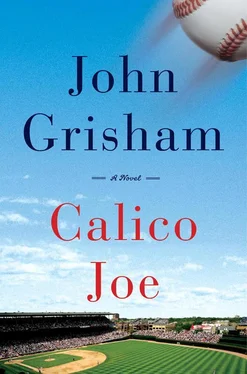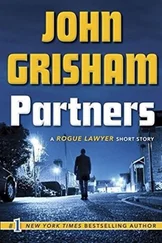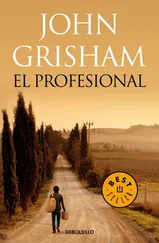His shoulders sag a little, and there are tiny beads of sweat on his forehead. He pinches his nose and almost under his breath says, “I’m sorry I slapped you around, Paul.”
I roll my eyes in frustration and want to curse. “You’ve apologized a hundred times for that, Warren. I’m not here because of the slapping. I’m not here to dredge up your deficiencies as a father. I buried those a long time ago.”
With a paper napkin, he wipes the sweat from his face. His skin has lost what little color it had. He takes a sip of coffee and stares at me. In a voice that is suddenly weak and raspy, he says, “I threw at Joe, but I swear I didn’t mean to hurt him.”
I was waiting for this, one of baseball’s greatest lies, one of the lamest excuses in the history of sports. I shake my head in disbelief and say, “Gee, what a surprise. The same asinine cop-out pitchers have been using for a hundred years. So, let me get this straight, Warren. You deliberately throw a fastball at a batter’s face, at ninety or perhaps ninety-five miles an hour, from sixty feet away, a distance that gives him less than a second to react, with the intent, the goal, the dream to see the ball hit him somewhere above the neck and knock him to the ground, preferably in a state of unconsciousness. If they carry him off, no big deal. If he misses a few games, no big deal. Yet when the beanball actually does serious damage, you can hide behind the old faithful ‘Gosh, I didn’t mean to hurt him.’ Can’t you see how utterly ridiculous this is, Warren? You sound like a fool for saying it.”
Again, I am aware that this sounds too harsh, but I’m fighting anger right now.
He drops his head, nods at something, then looks through the window. There is a crowd of seniors waiting around the front door. The hostess keeps looking our way. I think she wants our table, but I’m in no hurry.
He finally mumbles, “It was just part of the game.”
“Your game, maybe,” I shoot back. “But then, you were a headhunter.”
“I was not.”
“Then why did you throw at their heads? Why didn’t you throw at Joe’s thigh or hip or ribs, anything below the shoulder? That’s what the code says, right, Warren? The code says sometimes you have to hit a guy—I understand that. But the code also says you never throw at a guy’s head. But you were a tough guy, weren’t you, Warren? You wanted to hit Joe in the head.”
“I’m bored with this conversation. What do you want, Paul?”
“Let’s take a trip together, go to Calico Rock. You can sit down with Joe and shake hands, say what you want to say, have a long chat about the game, about life, whatever. I’ll be there. Joe has a couple of brothers who take care of him, I’m sure they’ll be there. It will mean a lot to Joe and his family. I promise you, Warren, you will not regret doing this. Let’s close this chapter. Now.”
He picks up my story and says, “And if I don’t, then you’ll get this published after I’m gone?”
“That’s the plan,” I reply, doubting now that the blackmail was a good opening strategy.
Quickly, he rips it in two, tosses it at me, and says, “Go ahead. I’ll be dead.” He’s on his feet and working his way through the crowd at the front door, moving nicely for an old sick man. He gets in the golf cart, grips the wheel, and pauses as if he’s hit with another sharp pain. He gazes into the distance, waiting, deep in thought, and for a second I think that maybe he has changed his mind.
Then he drives away, and I am certain I will never see him again.
18

On September 23, the doctors released a statement about Joe’s condition. Because of the trauma to the optic nerve, Joe had lost at least 80 percent of the vision in his right eye, and the loss was permanent. The probability of Joe playing again was, in their opinion, “extremely low.”
The news broke the hearts of Cubs fans. Their annual “wait till next year” suddenly lost all of its promise and excitement. The greatest prospect in their long, frustrated history would never play again.
It also crushed the spirits of the players. Joe’s teammates were struggling without him, and the news from New York was devastating. Later that afternoon they were blown out by the Braves, and they would lose the next three, falling two games behind the Mets, who were winning and on the verge of clinching the National League East. The Mets would go on to beat the Reds for the pennant, and do so without a player hitting over .300 or a pitcher winning twenty games. In the second coming of the Miracle Mets, they pushed the A’s to seven games before losing the World Series.
The miraculous yet tragic career of Joe Castle came to an end. His numbers were mind-boggling—in thirty-eight games he had 160 at bats, seventy-eight hits, twenty-one home runs, twenty-one doubles, eight triples, thirty-one stolen bases, and forty-one RBIs. His batting average of .488 was the highest ever, but would not be entered into the record books because he didn’t play enough. Other records would stand: (1) the first rookie to hit three home runs in his first game; (2) the first rookie to hit safely in his first nineteen games; (3) the first rookie to steal a base in nine consecutive games; (4) the first rookie to steal second and third in seven different games; and, his most famous, (5) fifteen consecutive hits in fifteen at bats. He tied several other rookie records, including four hits in his first game.
But on September 23, 1973, his numbers meant little to him and his fans.
* * *
My father eventually came home after being released by the Mets, and during the first family dinner he tried to appear upbeat about his future. Supposedly, several teams were interested in him for the 1974 season. Negotiations were under way, deals being offered. We listened and pretended to believe him, but we knew the truth.
In an effort to stay busy, he painted the inside of the garage, installed new gutters, worked on his car, and seemed to be making plans to live there for a long time.
My mother was playing a lot of tennis and secretly looking for a job.
I came home from school one afternoon and, as usual, planned to leave as soon as possible and hustle down the street to the Sabbatinis’. My father was in the den watching television, and when I walked through, he said, “Say, Paul, you got time for a catch? I need to keep my arm loose.”
As bad as I wanted to say no, I couldn’t do it. “Sure.”
I had vowed to never again toss a baseball with my father.
* * *
… an open area where we had a small backstop and a wooden home plate. He grabbed me by the arm and said, “First of all, don’t ever ignore me again like that. You hear me? I’m your father and I know a thousand times more baseball than those clowns who call themselves coaches.” I tried to pull away, but he dug in with fingernails. He was getting angrier with each passing second. “You hear me? Don’t ever ignore me again.”
“Yes sir,” I said, but only to keep from getting hit.
He let go and put his finger under my chin. “Look at me,” he snarled. “Look me in the eyes when I’m talking to you. There’s a right way and a wrong way to play this game, and you got it all wrong. Never, I repeat, never let a hitter show you up like that. At any level of the game, I don’t care if you’re eight years old or playing in the World Series, never let a hitter show you up like that. This is how you handle that type of an asshole. Get up there.”
I took the bat and got in a stance at home plate. He backed away, maybe fifty feet. He was wearing his glove, and he had three baseballs in it. I was an eleven-year-old kid, without a batting helmet, facing a pitcher for the Mets, one who was not only angry but in the process of teaching me the crude art of hitting a batter.
Читать дальше












